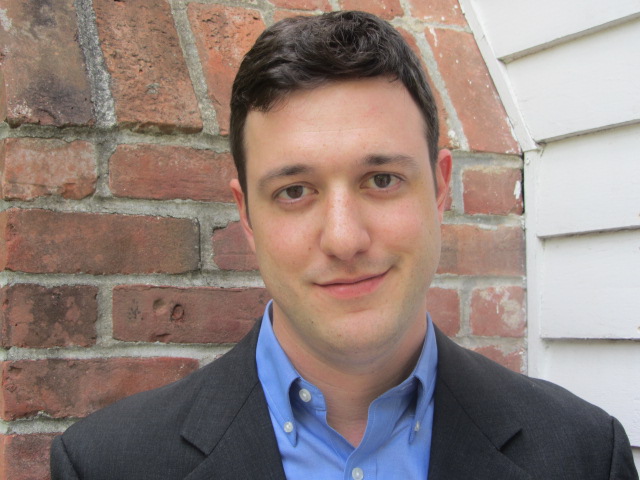Supreme Court Denies Cert in Mehanna and Ali Cases
It's not just the same-sex marriage cases. The Supreme Court today also denied petitions for certiorari in a pair of cases we've been following. The first petition was from Tarek Mehanna, a Massachusetts man who was previously convicted for providing material support to a Foreign Terrorist Organization (FTO) in violation of 18 U.S.C. § 2339.
Published by The Lawfare Institute
in Cooperation With

It's not just the same-sex marriage cases. The Supreme Court today also denied petitions for certiorari in a pair of cases we've been following. The first petition was from Tarek Mehanna, a Massachusetts man who was previously convicted for providing material support to a Foreign Terrorist Organization (FTO) in violation of 18 U.S.C. § 2339. Andy Wang provided a great overview last week of the arguments that both parties submitted in their briefs, and for more information you can read Lawfare’s previous coverage on the case here.
The Court did not elaborate on its reasoning for denying Mehanna’s petition, but the case appears under a long list of other cases that the Court has declined to hear (you can see it listed at the top of page 9 here).
A major issue that seems to remain open as a result of the Court’s decision is the extent to which a defendant must “coordinate” his or her activities with the FTO in question in order to be convicted under § 2339. The Court had previously held in Holder v. Humanitarian Law Project, 130 S. Ct. 2705 (2010), that § 2339 “reaches only material support coordinated with or under the direction of a designated foreign terrorist organization” (emphasis added).
Mehanna argued in his initial brief that he had no direct contact with anyone that was actually affiliated with an FTO, in this case Al Qaeda. In fact, his trip to Yemen in 2004---during which he allegedly attempted to contact Al Qaeda members---did not lead him to develop any relationships with individuals connected with the terrorist organization, and he returned to the Boston area shortly thereafter. Mehanna then translated materials and assisted in the content-management activities of a website called At Tibyan that was frequented by Al Qaeda members and other adherents of jihadist ideology. Because the website was involved in translating materials for Al Qaeda, the Government argued that a direct showing of coordination between Mehanna and the FTO was unnecessary. Since Al Qaeda coordinated with At Tibyan at various times, including for the publishing of Al Qaeda manuals and documents, and because Mehanna produced translations for the same website with full awareness that the goal of the online propaganda was to generate additional recruits and financial support for Al Qaeda, the coordination element was satisfied. Given the First Amendment issues associated with such questions, this is an issue that is likely to surface again in future “material support” prosecutions, and one that is likely to be a particularly fact-specific inquiry.
The Court also denied cert in Abdul Razak Ali v. Obama, a habeas petition brought by Guantanamo detainee Abdul Razak Ali (you can see the case listed on the bottom of page 25 of the Court’s announcements here, and read Lawfare’s write-up of the DC Circuit’s ruling, affirming denial of Ali’s habeas petition last December, here). Ali had been captured in Pakistan in 2002 at a guesthouse along with fellow inmate Abu Zubaydah, and had contested his confinement in his habeas petition as a form of “guilt by guesthouse,” claiming that he mistook the place as a public guesthouse and was being held merely because he had been found at the same guesthouse as Abu Zubaydah.
The DC Circuit rejected this argument, with Circuit Judge Brett Kavanaugh explaining that, in an unconventional wartime situation, “other indicia” were important in deciphering whether an individual in Ali’s position could be identified as an enemy combatant under the 2001 AUMF. These indicia included the facts that the guesthouse contained documents and equipment associated with Abu Zubaydah’s forces, that Ali travelled to Afghanistan after 9/11 with the specific purpose of fighting against coalition forces, and that he had lied about his identity when captured and had maintained a false cover story for over two years.
The Supreme Court’s decision to decline to exercise review of Ali’s petition leaves the DC Circuit’s ruling intact. For a perspective on whether the DC Circuit’s decision (along with previous 2001 AUMF-related habeas cases and the procedural rules articulated in these cases) have rendered habeas proceedings “functionally useless,” see Steve Vladeck’s post from last December.
Alexander Ely is a student at Columbia Law School, where he is Editor-in-Chief of the Columbia Journal of Transnational Law and Vice President of the National Security Law Society. He holds an M.A. in Law and Diplomacy from The Fletcher School at Tufts University, where he was Editor-in-Chief of The Fletcher Forum of World Affairs and spent a summer as a Harold Rosenthal Fellow in International Relations at the Department of Defense. Prior to graduate school, he spent two years working for an international communications consulting firm, and was previously an Editorial Researcher at Foreign Policy Magazine. He graduated with a B.A., cum laude, in Government from the College of William & Mary in 2009.




.jpg?sfvrsn=d5e57b75_7)
